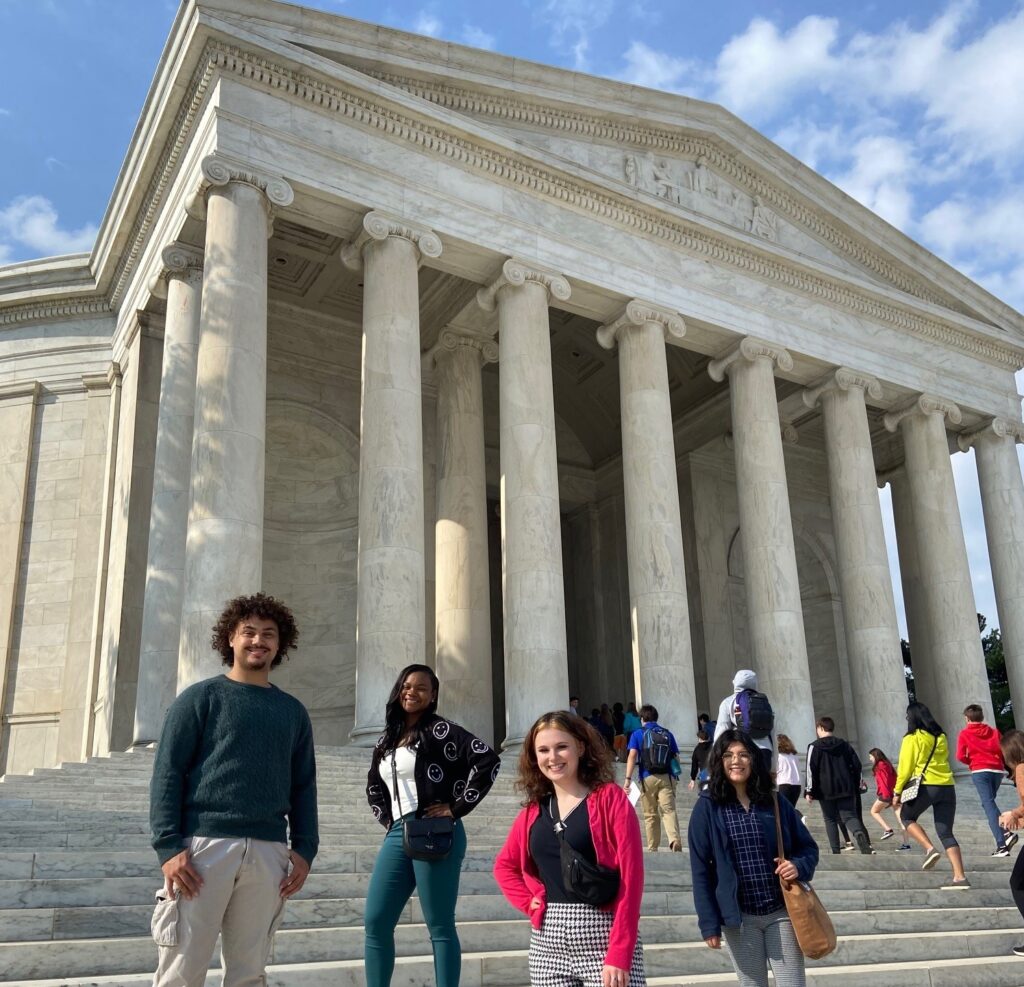Are you applying to college for the first time and researching your options?
Are you already enrolled but concerned about the quality of your education?
Do you see signs your school is struggling financially?
Doing your own homework, asking good questions, and planning for uncertainties can make a big difference and
The Scholarship Foundation can help.
Colleges are closing at record rates nationally, a situation exacerbated by long-predicted demographic trends and a challenging economy which was temporarily bolstered by COVID relief funds. The decision to attend college is an educational and financial one and can be life-altering. Students need objective information to make good decisions, so that their college choices help and do not hurt them financially.
Aggressive marketing and selective messaging rule the day. Schools are quick to announce “biggest freshmen class ever” or “major new capital project underway” or to unveil merged or new programs, giving the impression all is well. Having experienced first-hand the implications of college closure at an institution just blocks away from its St. Louis office, the Foundation seeks to assist students in developing a deeper understanding of the financial issues schools face and to be prepared for all possibilities.
This publication is the second student advisory on the matter of college financial solvency issued by The Scholarship Foundation in 2024 and the fourth since 2020.[1]
Watch List
Students considering attendance at the following schools are urged to exercise caution. Each of these schools has scored below 2.0 on a 4.0 scale in one or several of the last five years (further explanation of approach and methodology below). Schools indicated by an asterisk (*) are included as a result of financial notations in their accreditation reports published by the Higher Learning Commission. Those in red font are of special concern due to recent financial scores and disclosures or exceptions or notations in their financial statements.
| Bradley University | McKendree University |
| Central Baptist College | Mercer University |
| Coe College | MidAmerica Nazarene University |
| Columbia College- Chicago | Missouri Baptist University |
| Columbia College – Missouri | Missouri State University – West Plains* |
| Culver-Stockton College | Missouri Valley College |
| DePaul University | Oklahoma City University |
| Drake University | Quincy University |
| Drury University | Regis University |
| Evangel University | Rockhurst University |
| Fontbonne University (closing 8/25) | Saint Xavier University |
| Harris-Stowe State University* | Southwest Baptist University |
| Kentucky Wesleyan College | Union University |
| Lake Forest College | University of the Incarnate Word |
| Lane College | Webster University |
| Lincoln Memorial University (TN) | William Woods University |
| Loyola University-New Orleans | Xavier University of Ohio |
| Maryville University |
Approach
The Scholarship Foundation’s approach to the issue of college financing is centered on the interests and vulnerabilities of low-income and first-generation students. To provide quality information, the Foundation has relied upon data publicly available from reputable and objective sources.
A five-year lens is applied to institutional outcomes in order to mitigate short-term effects of one-time funding boosts (COVID relief funds or redirection of endowment, for instance) or adjustments in accounting practices at the institutional level. One year of data does not tell the full story, so average scores over multiple years are also calculated by the Foundation.
Methodology
For consistency and rigor, the Foundation has relied upon two composite scores: United States Department of Education Financial Responsibility Score and Forbes College Financial Health Score. It is important to note that methodology underlying the composite scores reported for each institution is the purview of the entities reporting the scores and not determined by the Foundation. Schools wishing to challenge scoring methodology should be in dialogue with the United States Department of Education or Forbes.
Included on the Foundation watch list are those schools Scholarship Foundation students attend which have scores lower than 2.0 on a 4.0 scale for one or more of the last five years. Schools indicated in red have experienced especially significant financial struggles. The Scholarship Foundation of St. Louis advises students to be aware of how their schools (current or intended) score on both indices.
When necessary, staff of The Scholarship Foundation search for further explanation of a school’s financial condition. These additional efforts have included, but are not limited to, reviewing published financial statements and audit reports, retrieving accreditation letters, and searching for relevant reporting on financial matters in local and regional mainstream media outlets.[2] The Foundation’s full spreadsheet from which the analysis is drawn is updated annually and available for review.[3]
Impact
The publication of this information has been met with gratitude and concern from students who are in the midst of making very important decisions and with criticism from colleges who find themselves on the watch list. The Scholarship Foundation views student inquiry as productive, diligent, and essential self-advocacy. It is far better to make a decision with the relevant information in-hand than it is to assume all is well based on appearances.
The Scholarship Foundation does not counsel students whose schools are on the watch list to turn their attention elsewhere. Foundation staff assist students in forming the questions they wish to ask and support the decisions the students make for themselves. The Foundation does not necessarily withdraw funding for students attending schools on the watch list, though the Foundation may refuse to fund attendance at schools with financial responsibility or financial health scores below a 1.0 (a failing grade).
Conclusion
The stakes in making an enrollment decision are particularly high for low-income and first-generation students. Schools in financial distress may over-admit students without capacity to properly support their needs and, in dire situations, may have to announce merger or closure.
The costs to students are measurable in time and money when their schools announce they will close. They may find themselves:
- having to transfer, though the credits they have earned (and paid for) may not go with them to a new school and a new degree.
- accelerating their time to graduation, only to find that, while their school is open, the services and staff on which they rely are dramatically cut.
- bearing the psychic costs of “starting over”, which can be debilitating, especially for those who are first in their family to pursue higher education.
For students caught in the net of school closures, trust in the promise of higher education can be undermined. This impact can be significant and span generations.
Information and advanced planning can mitigate such damage. With schools across the country closing and financial scores slumping, The Scholarship Foundation is committed to its mission of providing the support students need to succeed in achieving their postsecondary goals.
[1] For prior alerts, see: 2020 Buyer Beware, General Alert, 2021Financial Solvency Alert with Scores, and March, 2024 Financial Solvency Alert
[2] For documents related to individual schools, see: https://www.hlcommission.org/directory-of-institutions/; https://projects.propublica.org/nonprofits/; https://app.fac.gov/dissemination/search/
[3] For the October, 2024 Scholarship Foundation spreadsheet, see: 2024 Colleges Due Diligence
Students seeking support in assessing their school’s financial condition, formulating questions, or making an enrollment decision may schedule an appointment with a Scholarship Foundation advisor.




